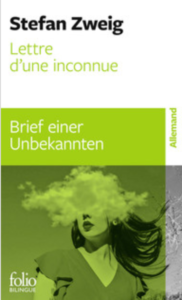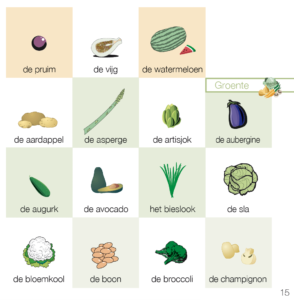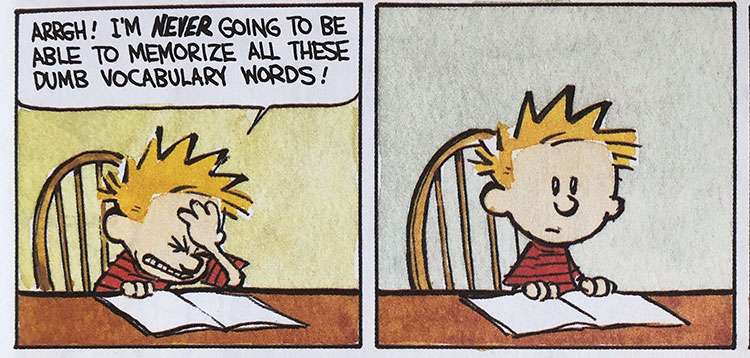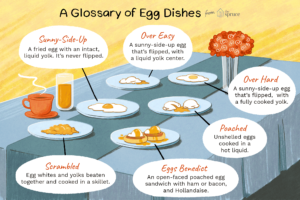On eating eggs and learning new words
“How do you like them eggs? Soft boiled? Omelet? Scrambled? Poached? Sunny Side up? Over easy? Benedict?” To the bemusement (or embarrassment?) of my family, for years I would dread being asked how I wanted my eggs cooked at the Waffle House. Tired of gambling with my eggs, one day I just decided to confront the Southern egg cooking lexicon. Sometimes you just have to memorize life’s key words.
To function in any language, you have to know words, expressions and idioms – lots of them and find ways to use them.
But how do you actually learn vocabulary, memorize it, review it and make sure it doesn’t all go away a couple of weeks later to put you back at square one at the Waffle House?
If vocabulary teaching and acquisition was a neglected field for a long time, this has changed in the last thirty years (See Folse, 1; LightbownSpada, 60). There is a bevy (I like that synonym for “a large group of something”) of available resources on learning vocabulary with a multitude of tips and tricks, some of them fanciful or useless, others really valuable. Which ones you opt for depends on many factors: your education, your level in the language your are tackling, your goals, your learning context, etc.
Seven Things I do
We assimilate vocabulary through listening, watching, reading, writing, speaking, interacting with others. The contribution of each is the subject of much research, but a combination of all those is probably best (see Feng). I try to keep up or increase my vocabulary in several languages, using a combination of various ways for each. I practice German very regularly and aim for a decent fluency at some point. My goal for Romanian is much more limited. I just want to learn the basics of it and therefore need a limited vocabulary. The objective is really to help me teach languages to my students from Romania (there is now a sizable Romanian community in Brussels).
These are seven things I do at this stage. Hopefully, they will give you some ideas and inspiration.
I have a regular language check-up
I am working on several languages with different fluency goals. As is the case for anything we learn in life, it’s a good practice to regularly check our progress, to examine our motivations, expectations, and methodologies in light of our goals. I do it a couple of times a year. This gives me a chance to see what works and what doesn’t in my language adventures.
Granted, we are not always the best placed to evaluate ourselves, but it’s not a useless exercise altogether and there are some objective benchmarks we can resort to (can I understand a podcast or a book I could not understand six months ago?, etc.). Doing this allows me to revisit my beliefs and convictions about what it is to learn a language and vocabulary in particular, how it should be done, why something is efficient or not. Is it me? The tools and books I use? I try to be honest with myself about this. Then, if need be, I make the necessary changes.
I recently looked at why my German has been plateauing or even getting worse the last few years. One reason is that I simply have not been keeping it up in a somewhat disciplined, structured way. I therefore decided to work on it and to learn German vocabulary in a systematic way again starting in January 2021. I use the free Deutsche Welle learning platform, imo better and more comprehensive than Duolingo. I’ll see in a couple of months whether there is any upswing.
I don’t always learn words with their articles
Yes, I know. A basic principle is that you learn words with their articles in gendered languages. But… that’s an awful lot of work. A few easy rules can lighten your burden. For example, in German substantives that end in -ung are mostly feminine (die Beschreibung), so are words in -schaft (die Manschaft). Words in -er are masculine (der Arbeiter). If there are exceptions (die Tochter), I just learn those. You can do the same in French (substantives in -tion are feminine: la nation), in Dutch diminutives and words in -ment take the article “het” (het meisje, het abonnement). I learn whatever rules can reduce my memorization labor first, then the articles when necessary.
I use Anki
Many solutions dedicated to memorizing information are available today, several of them designed specifically for vocabulary memorization (Drops, lingvist, Pons, etc.). Many people still use Word or Excel for that purpose, but that’s not the goal of those programs. I use the Pons iOS app a lot but the tool I use the most is the popular Anki app, a program designed to help you memorize any information and therefore perfect for learning vocabulary. Anki is an implementation of what is called Spaced Repetition (see also LightbownSpada, 91, 277, Spaced Repetition: Never Forget Vocabulary Again). It’s not the best-looking app, but it’s free for desktops and smartphones—you do have to pay for the IPhone app–but it is well worth the price (see the Getting Started guide).
I use it on my Mac and my IPhone and have a deck (a database in Anki’s parlance) for every language I am working on. One of its main advantages is that you can customize and tailor it to fit your needs and the data you are learning. You can even integrate images and sound files in your vocabulary. The only deck I practice almost every day is German.
If the only thing you get out of this post is using Anki, time has not been wasted. Get Anki and learn how to use it. It’s quite simple really and there are video tutorials available on YouTube.
I use a notebook
An old-fashioned way to learn vocabulary still widely recommended in specialized literature is to use a notebook. That’s what I have been doing for German this year. I try to learn or reacquire about ten words a week. I use one page per week. I write down words, expressions, examples of sentences, etc. and add them into Anki too. Ten words is not much but that adds up to 500 words a year to the vocabulary I already know. If you start from zero, you might want to target more than 10 words a week. I use the notebook only for German, for the other languages I use Anki or scraps of paper here and there.
It’s ok sometimes to write only words in your notebook or in Anki. Contrary to what is often said, you don’t always have to learn vocabulary in context (which can be images, sounds, other words, quotations, lines from songs or movies, etc.). Lists of vocabulary and flashcards can sometimes be more efficient and all you need. Contexts can be really useful when learning words or expressions for the first time or that you just don’t manage to memorize in isolation, but less so when you’re revising them for the umpteenth time or when the words are obvious. If you speak French, you don’t need a context sentence to learn “escuela” in Spanish. Too much information can become informational and visual noise and distract you from the data you really need to remember. On this see Folse2004, 3–4; Mondria 2006, 4–6; Nation 2002, 271.
I look at my notebook almost every day. I go back to previous pages from time to time to really anchor what I have been memorizing. I also try to notice if these words or expressions appear in what I am listening to or reading.
I listen to the languages I am working on
It is well known that listening to a language helps you learn, revise and anchor the vocabulary you need. Depending on your objectives and level there are different ways to listen with a purpose of increasing your language skills.
Listening to audio material when you are just starting to learn a language can be difficult, but you should be able to do it once you have reached an A2 or B1 level. Just choose something you are familiar with or interested in. I have never fished in my life. Listening to shows about fishing would be totally foreign territory and therefore discouraging. However, since I have been trying to learn guitar for about 40 years now, I have recently started to watch YouTube guitar videos in German. I also try to listen to German news regularly, paying attention to vocabulary I know or should know and repeating phrases or sometimes entire sentences.
I read in the languages I’m learning
 Just as is the case with listening, reading will help you learn and revise vocabulary, depending on how it is done. Again, what to read, how, and how often will depend on your level and goals. Reading in a foreign language can be intimidating. It is estimated that to understand a written text you need to know at least 90% of the vocabulary in it. If you don’t, you might get discouraged and thrown in the towel. To avoid this I would avoid reading “real” texts too early. There are plenty of simplified texts available for language learners. Once you are a level A2-B1, though, you should start reading real texts in subjects that interest you.
Just as is the case with listening, reading will help you learn and revise vocabulary, depending on how it is done. Again, what to read, how, and how often will depend on your level and goals. Reading in a foreign language can be intimidating. It is estimated that to understand a written text you need to know at least 90% of the vocabulary in it. If you don’t, you might get discouraged and thrown in the towel. To avoid this I would avoid reading “real” texts too early. There are plenty of simplified texts available for language learners. Once you are a level A2-B1, though, you should start reading real texts in subjects that interest you.
So far this year, I have read one book in German in a bilingual edition (Stefan Zweig, Briefer) and plan to read more and eventually non-bilingual editions. I read it once, often starting with the French page and then a second time but starting with the German page. As I go, I take note of the vocabulary I think I need to know and remember but not of every single word I do not understand.
I anticipate and learn the vocabulary I’m going to need
Have you ever been to a store and got stuck when time to order came? Ever got your cheese in thicker slices than you care for because you didn’t know how to say “thinner slices, please” or got overcooked steak because you did not know the difference between “rare, medium rare and well done” and you hadn’t checked that before going to the restaurant? I have.
 To retain vocabulary, you have to learn it, hear it, read it but also actively use it. I try to find the opportunities to use the languages I learn and make the most of them by anticipating them. For years now I have done all my shopping in Dutch at the weekly Saturday morning market down the road, which has helped me learn how to order things from sliced cheese to vegetables to the different types of bread in Dutch. At first, I would simply try to anticipate the vocabulary and expressions I would need and learn them ahead. For that kind of thematic learning, I like using these pictorial dictionaries.
To retain vocabulary, you have to learn it, hear it, read it but also actively use it. I try to find the opportunities to use the languages I learn and make the most of them by anticipating them. For years now I have done all my shopping in Dutch at the weekly Saturday morning market down the road, which has helped me learn how to order things from sliced cheese to vegetables to the different types of bread in Dutch. At first, I would simply try to anticipate the vocabulary and expressions I would need and learn them ahead. For that kind of thematic learning, I like using these pictorial dictionaries.
I have been in the process of buying a new bike in Leuven. Since I had never talked about bikes in Dutch I decided to learn the necessary biking vocabulary in Dutch using a web page I found and watching several videos. I finally got a VSF Fahrradmanufaktur bike, a good German brand. So I also learned the German biking vocabulary using a picture dictionary from Pons that I use a lot and watched videos on YouTube.
Don’t wait to be speechless and flabbergasted in the store. Learn the vocabulary you know you will be need on a regular basis in advance. As you use it, you’ll remember it. If you do that each week for one different store, your vocabulary will quickly expand.
A Final Word
Don’t believe the hype about learning a language in 30 days and without pain. Have you ever met anybody who learned your language and could function in it in different situations in life without work and in less than a year, at least? My bet is you haven’t.
I often tell my students that learning a language is like sports and music. It’s a lot of long-term work. There’s just no way around it. But the way you go about it and the difficulty vary according to your level and goals. As is the case with many new endeavors, the main amount of work comes at the beginning. After the initial stage, you can use the language and just add more vocabulary to get better at it.
So, how do you like them eggs?
References
Feng, Yanxue, “Learning Vocabulary through Reading, Listening, and Viewing: Which Mode of Input is More Effective?”, Studies in Second Language Acquisition 42 (2020): 499–523.
Folse, Keith S. “Myths About Teaching and Learning Second Language Vocabulary: What Recent Research Says.” TESL Reporter 37.2 (2004): 1–13.
Lightbown, Patsy M., and Nina Spada. How Languages are Learned. Oxford: Oxford University Press, 2013.
Mondria, Jan-Arjen. “Mythen over vocabulaireverwerving.” Levende Talen Tijdschrift 7, no. 4 (2006): 3–11.
Nation, Paul, “Best Practice in Vocabulary Teaching and Learning” in Methodology in Language Teaching: An Anthology of Current Practice, ed. Jack C. Richards and Willy A. Renandya, Cambridge: CUP, 2002, 267–272.
Webb, Stuart Alexander, and I. S. P. Nation. How vocabulary is learned. Oxford: Oxford University Press, 2017.
(The cartoon used at the top is from Calvin and Hobbes).

